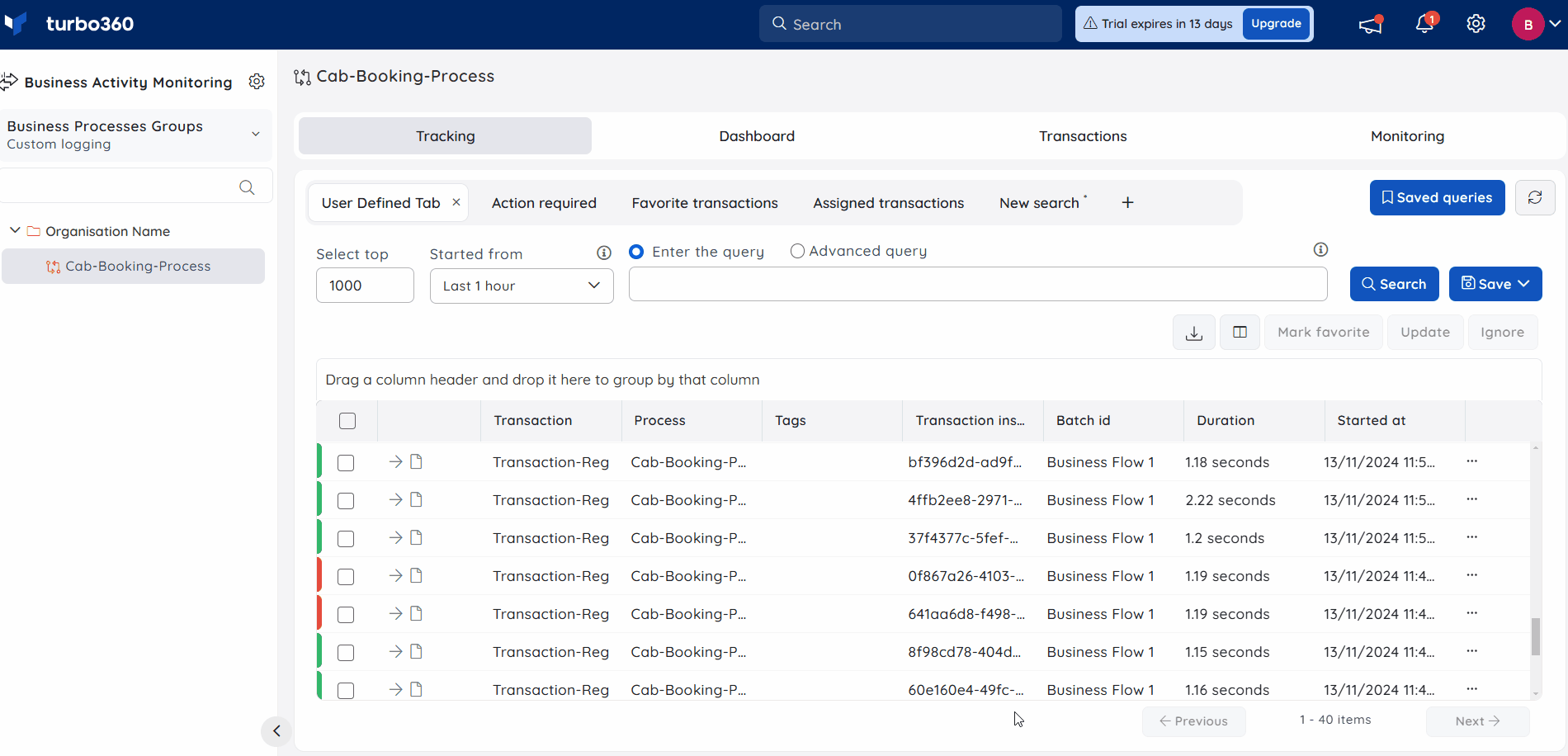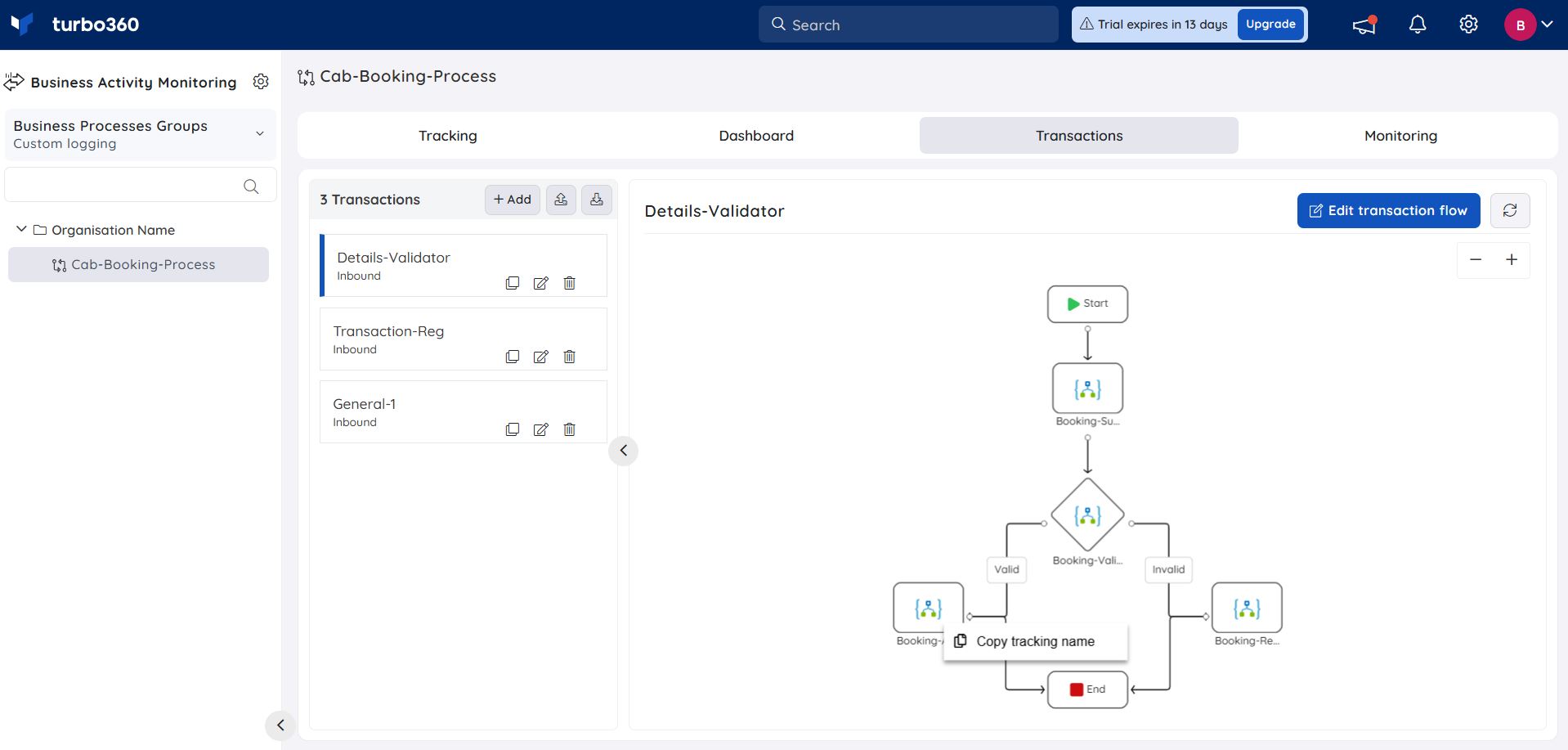- 19 Nov 2024
- 1 Minute to read
- Print
- DarkLight
- PDF
What is Transaction Instance?
- Updated on 19 Nov 2024
- 1 Minute to read
- Print
- DarkLight
- PDF
Introduction
A Transaction Instance is any instance that goes through certain stages in a transaction.
Each message sent from the configured app, such as a Logic App or Power Automate, is mapped to a user-defined transaction schema and displayed on the tracking page.
Business Activity Monitoring (BAM) creates a new workflow instance for each run of a Logic App or Power Automate. For example, By default each workflow instance operates in parallel, so no workflow has to wait before starting a run. Users can examine what occurred during that run, including the status of each transaction in the workflow as well as the inputs and outputs for each stage.
Business scenario
Given below is an image of a business transaction flow in a business process named Cab Booking Process:
In this example, Booking Submission is the Start Transaction that will receive the order details first.
Booking Validation is the next step, which separates that specific order based on any conditions.
The next stage instance will be either Booking Accepted or Booking Rejected based on the condition specified in segregateOrders.
There are four levels of transaction status:
- Success- The transaction instance flag will be indicated in Green color.
- Inprogress- The transaction instance flag will be indicated in Orange color.
- Failure - The transaction instance flag will be indicated in Red color.
- Inprogress with failure- The transaction instance flag will be indicated in Red color.
There are three levels of stage status:
1. Success - Stage instance will be filled in Green color.
2. Inprogress - Stage instance will be filled in Orange color.
3. Failure - Stage instance will be filled in Red color.
Message flow graph
Message flow graphs illustrate how messages flow from stage to stage along with their current health status. Clicking on any transaction instance in a business transaction will show the message flow for the transaction.



